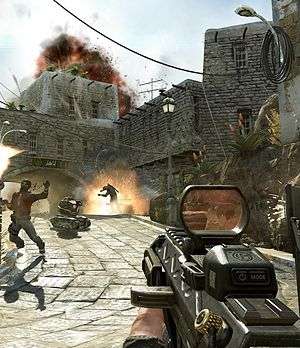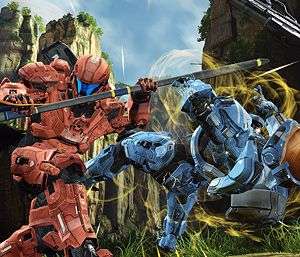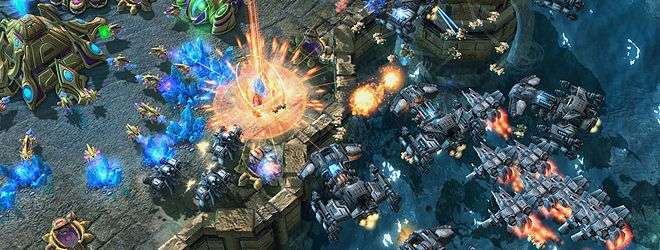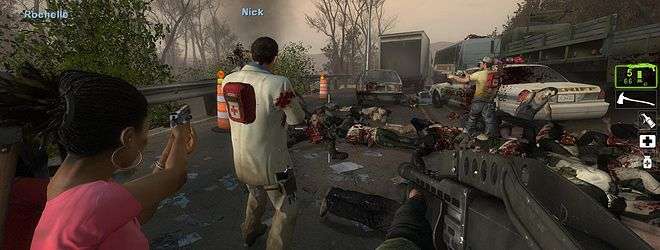Gaming Etiquette – The Unwritten Rules of Playing a Game With Others
by Jack
 If the term is unknown to you, ‘Gaming Etiquette’ is the collective term for the unwritten social norms and rules that players follow within the world of video games, when interacting with others. Said etiquette exists to ensure that each player’s experience is easy-going and enjoyable. It is supposed to prevent people from playing in a way that is a detriment to others around them. It is supposed to be a guide for people to follow, simply to make playing with others more fun and less messy.
If the term is unknown to you, ‘Gaming Etiquette’ is the collective term for the unwritten social norms and rules that players follow within the world of video games, when interacting with others. Said etiquette exists to ensure that each player’s experience is easy-going and enjoyable. It is supposed to prevent people from playing in a way that is a detriment to others around them. It is supposed to be a guide for people to follow, simply to make playing with others more fun and less messy.
What gaming etiquette exists to do is, unfortunately, not always what it achieves. There are a few reasons why this is so, and these are usually caused by certain kinds of players. One such type is the newbie, the player who hasn’t been around long enough to have had time to adjust and learn the etiquette. Dave Cook from VG24/7’s own example of gaming etiquette that he experiences regularly “… as a big CoD fan is people on your team not stealing your care packages. You just don’t do it. But I think as the rules are unwritten then they can be broken by newcomers”.
Some leeway can be granted for a player not yet knowing the status quo of care packages in Call of Duty, but not much. This is because it’s an obvious thing to avoid; you are taking something that isn’t yours from another player, which is stealing and stealing is wrong. So, there isn’t all that much leeway you can grant to a player not knowing that one rule of gaming etiquette is to not steal another player’s stuff – because usually they do.
 This brings us to the next kind of etiquette-breaking player: the griefer. “Some people may openly reject [the rules] and flaunt their rejection as a form of identity and entertainment. We’d probably call these people trolls or griefers”, explains Jamie Madigan, the creator of psychologyofgames.com. It’s the griefer who is the most conscious and willing rule-breaker of a game’s etiquette and the greatest threat to another’s enjoyment since the griefer is purposely trying to ruin the experience for others.
This brings us to the next kind of etiquette-breaking player: the griefer. “Some people may openly reject [the rules] and flaunt their rejection as a form of identity and entertainment. We’d probably call these people trolls or griefers”, explains Jamie Madigan, the creator of psychologyofgames.com. It’s the griefer who is the most conscious and willing rule-breaker of a game’s etiquette and the greatest threat to another’s enjoyment since the griefer is purposely trying to ruin the experience for others.
The final kind of player, who also knowingly breaks the norms and rules, is, at times, equally as worse and damaging as a griefer. They are known as the sore loser and the bad sport (but are just as commonly known as the arsehole). It is this sort of player who rejects the etiquette as a means to get ahead or as a means to punish others for getting ahead of them. They are the camper, the rage-quitter and the kill-stealer. They are a constant nuisance, much like the griefer, but they are less of a threat to another’s experience because they can sometimes be controlled and/or pushed out.
This is understood better when we look at Jamie Madigan’s explanation of organisational culture. “It’s the shared understanding of what kind of behaviour will be rewarded or punished by people in a group. Players decide what kind of behaviour is acceptable or unacceptable, then reward and punish in order to reinforce or eliminate those behaviours.” While a griefer is knowingly trying to ruin the experience, the bad sport and the sore loser are only trying to exploit the game for their own benefit. If their behaviour causes them to be removed from the community which, in turn, may prevent them from actually playing, they are less likely to continue to behave in a way that is in violation of the title’s etiquette. “It’s less overt in informal groups like player communities, but I think the same principles apply through things like shunning, adding people to friends lists (or removing them), inviting people to groups (or kicking them out) and kick voting people off a server.”
 In some form, gaming etiquette exists in every instance when more than one player is interacting. In some forms it can be very obscure, but in others it can exist as an incredibly obvious but simple gesture of a few polite words being exchanged, or a player gracefully accepting defeat.
In some form, gaming etiquette exists in every instance when more than one player is interacting. In some forms it can be very obscure, but in others it can exist as an incredibly obvious but simple gesture of a few polite words being exchanged, or a player gracefully accepting defeat.
For example, “In StarCraft, it’s considered bad manners to quit without saying ‘gg’ [good game]. It’s also polite to start off each match with a friendly ‘glhf’ [good luck, have fun]”, explains Jason Schreier from Kotaku. “Less polite [is] starting off with a ‘gg’ as if the game has already been decided. It’s also very rude to try to extend the game when you’ve already lost, by floating your Command Center around the map or finding some other annoying way to waste everyone’s time.”
As obvious and as simple as these examples of etiquette may be, their origins are not always clear, nor is how they are enforced. It is not the developers who create the etiquette and it is not them who demand it be followed. Etiquette is actually created and shaped by its players, but by which players, and how?
“There are certain people who exert a larger influence on the culture. Founders and long-timers are one such group. They generally set the tone and create the rules which set in early and take a long time to change”, says Jamie Madigan. “Other groups might include any kind of organisational leader, which, in the world of games, probably means server administrators, moderators, top ranked players, commentators, or celebrities (e.g. popular writers, podcasters and YouTube personalities). People can pick up on the culture not just by playing games, but also by reading message boards, watching videos and talking with friends.”
Gaming etiquette is something very real and diverse. It is found in any title with players existing together and yet despite its rules being unwritten, it serves as a powerful tool in shaping a player’s experience with others. There will always be those who take exception to the rules; whilst some of them can be made to conform away from the rule-breaking, there will forever exist the griefers, the bad sports and the sore losers to disrupt things. However, they do exist as a minority. To make sure it stays that way, the next time you’re playing FIFA online and you’re the away team, then you let the other player choose their colour of kit and you change yours accordingly. The next time you’re at a friend’s house playing some split-screen, accept that you do not have a choice of controller and you’re stuck with the broken one. It’s simple, play games the way they’re meant to be played and don’t be an arsehole. Respect the etiquette.
Last five articles by Jack
- Best of 2013: A Problem With Collectibles
- Gaming Etiquette – The Unwritten Rules of Playing a Game With Others
- A Problem With Collectibles
- Dear Esther - Review
- One World, Every Player





















It’s an interesting subject, whenever I’ve joined a community it’s always been relatively established before I got there with etiquette systems already in place. Either that or the game was a part of an already well established genre with long time rules already in place which are transferable to the new game. I think it would be interesting to be there to see etiquette evolve and grow, perhaps even help shape it.
Also, if you don’t say GLHF and GG when playing StarCraft, you need a smack.
Great Article. I did find that playing online was often an excuse for people to be annoying to other people, everything from the spawn killer to the person who joins a GTAO lobby just to kill every person on the map at least once then leave. But what about the person who doesn’t even realise he is effecting everyone else’s game? The ‘shared world player’, games like Fable 3 or more recently Ascend; Hand of Kul. Games in which you share an online world maybe as a ghost but if you are wearing a headset to announce you ‘idiotatube’ to the world by singing or whistling or F*bombing cause you suck at the game? Seriously, why even wear a headset and not be in ‘chat’ if you are in a non-contact online game? They make me feel like having a Blucey rant even time they ruin my enjoyment and I cannot find them to mute them.